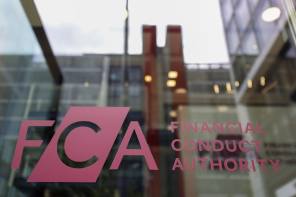

Advisers have warned against attempting to time the market as research showed investors retreated to cash amid the coronavirus crisis.
Data from HYCM, seen by FTAdviser, showed the most common asset class currently held by investors was cash savings, with 78 per cent of those polled having funds in savings accounts.
HYCM polled 900 investors with more than £10,000 of investable assets earlier this month (August 10) and found 40 per cent held stocks and shares while 38 per cent had property investments.
Almost a third (32 per cent) reported they would be putting more of their money into cash savings over the next 12 months — significantly more than the 21 per cent looking to increase their stocks and shares holdings and 14 per cent backing gold.
But advisers have sounded warning bells over moving in and out of cash during the current volatile market conditions.
Paul Gibson, of Granite Financial Planning, said: “While being nervous and unsettled is understandable acting on it is not. The problem with this kind of market timing is knowing when to get back into the market. It is impossible to get both decisions consistently right.
“Many of those who reacted back in March will still be sitting in cash and will have missed on the subsequent market recovery.”
Scott Gallacher, chartered financial planner at Rowley Turton, agreed. He said moving to cash during turbulent markets was generally considered a “bad move” for investors.
Recent research from 7IM showed that retreating to cash during the market crashes of the past 12 years had left investors more than £50,000 worse off than their more patient counterparts.
The S&P 500 is up 50 per cent since the market lows at the end of March, while the UK’s blue chip index — although struggling more — is still up 20 per cent from the crash.
Mr Gallacher said: “Perhaps the key is avoiding this potential problem in the first place.”
He said this could be achieved by ensuring clients fully understood the short-term downsides of investing, spending time talking to clients about risk and ensuring clients’ portfolios were appropriate to their risk profiles.
Other protective moves included making sure clients had sufficient cash reserves for both their short-term needs and particular comfort level, reminding clients what market crashes looked like and being there for clients when the crash actually happens.
Mr Gibson said planning for three-decade retirements and building financial plans helped inform the investment strategy.
He added: “If the financial plan and the client’s goals and objectives remain unchanged no knee jerk reaction to the investment strategy should be taken.”
But Martin Bamford, head of client education at Informed Choice, was more sympathetic to clients’ longing for cash in times of turbulence.
He said: “It's no surprise that investors are retreating to the perceived safety of cash. None of us has lived through a global pandemic of this significance before, and it's hard to criticise fear.
“Rational investors will ride out the fear and remain invested for the long-term, but humans are rarely rational.”
imogen.tew@ft.com
What do you think about the issues raised by this story? Email us on fa.letters@ft.com to let us know.



